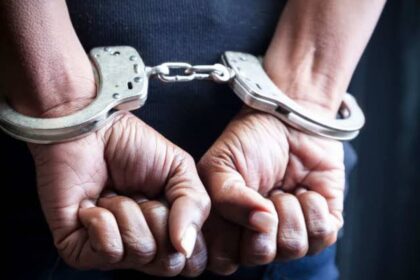Last weekend, re-run elections held at the National and State Assembly levels across the local governments of Rivers state, Nigeria. It was expected that this batch of elections were going to be tense and finish controversially, and it did, including a number of assassinations and near-death experiences recorded before the day.
The main protagonists in the re-run elections were supposed to be the people of Rivers state, the Independent National Electoral Commission (INEC) and the contestants for the Senatorial re-run. Instead, the verbal brawl between the Rivers state governor, Nyesom Wike, and Minister for Transportation, Rotimi Amaechi, turned out to be the most captivating story. Could the events of last weekend have been averted?
The love-turned-hate relationship between the present governor of Rivers state, Nyesom Wike, and his predecessor, Rotimi Amaechi, is not new. The enmity between these two former friends, who are members of separate major political parties in Nigeria, APC and PDP, was further intensified when Wike won at the Supreme Court early this year, reversing the election tribunal’s decision to sack him as governor.
Also, when the Supreme Court nullified some National and State Assembly election results, it was clear that something major would occur at the re-run elections. Cue last week Sunday, six days before the re-run elections, Amaechi issued a challenge to Wike and his “supporters” to “come out with their guns to the polls” because “there would be security” in the form of the Nigerian army, in a region with a history of electoral violence. Instead of keeping mum on the matter or rebuking Amaechi for his comments, the Rivers state governor’s response was to imply that Amaechi was bringing military personnel to Rivers state to rig the elections. It is no surprise then that a Nigerian army major and three soldiers were murdered by unknown gunmen just two days later.
As a result of this, the indignation displayed by Nigerians on social media platforms following the elections seemed a lot like hypocrisy. The Nigerian people and their government should have been expecting this, especially when the two major parties contesting saw it as a “do or die” affair, supporting propaganda messages across social media platforms, intending to mislead people. Force can’t be stamped down with more force in a democracy, especially in Nigeria. The precedent to this election was the violence in the April 11 2015 gubernatorial elections in the state and Bayelsa state’s re-run gubernatorial elections in January this year.
One cannot begin to imagine why the Minister of Transportation, who hasn’t implemented any significant policies in that sector, is so concerned about the Senate elections in his state. Did he forget that his mandate changed when he was appointed a minister of the Federal Republic of Nigeria? It may be wise for President Buhari to call him to order, except the president is implicit in this controversy as well. Also, why would the governor of Rivers state, who is the Chief Security Officer of the state, incite violence from his people? Has he also not made the transition from being a political thug to a governor?
Perhaps the tensions in the state would have calmed a little if the Independent National Electoral Commission (INEC) had postponed the elections, or if the president had equipped the Nigerian Police Force, instead of calling the army to handle matters of civil defence. Nigerians need to remind themselves that, in many cases, they hold the power, not the politicians. A personal tiff between two politicians should not be an influence on voters’ conduct during elections.


